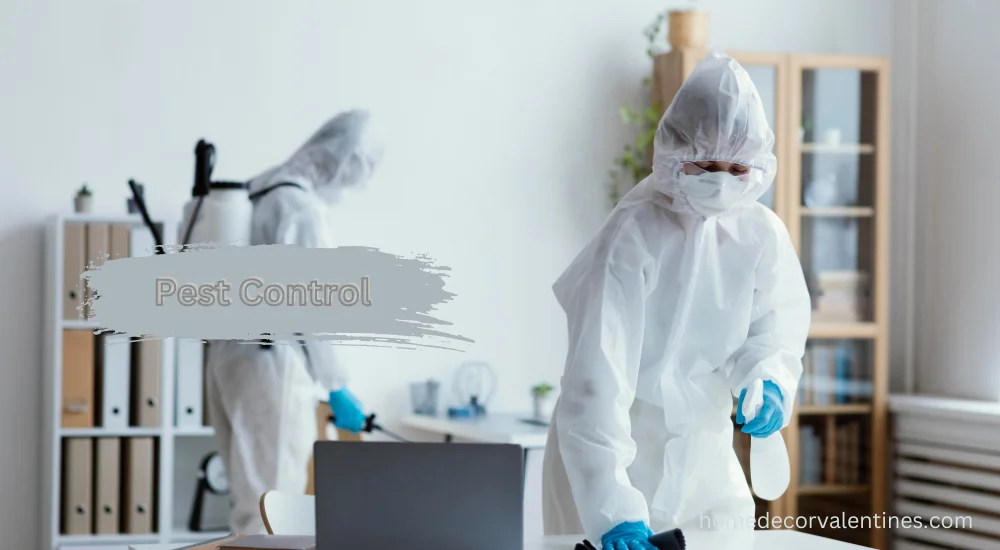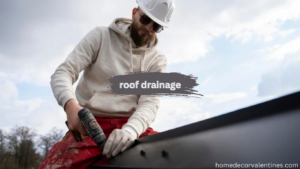The Ultimate Guide to Effective Pest Control: Tips and Tricks
Dealing with pest control is a universal challenge. Whether you’re a homeowner, renter, or business owner, pests can pose solemn risks to your health, property, and peace of mind. But fear not, because with the right knowledge and tools, pest control can become a manageable task.
Types of Pests
Common Household Pests
Household pests are the usual suspects that invade our living spaces. These include ants, cockroaches, rodents, bed bugs, and termites. Each of these pests brings its own set of problems and requires different approaches to control.
Outdoor Pests
Outdoor pests are typically found in gardens, lawns, and surrounding areas. These include mosquitoes, ticks, fleas, and various garden insects. Managing outdoor pests often contains different strategies compared to indoor pest control.
Pest Control Methods
Chemical Methods
Chemical pestcontrol involves the use of pesticides. These can be effective but also come with risks to health and the environment. Always follow directions carefully when using chemical solutions.
Biological Methods
Biological pest control uses natural predators or parasites to manage pest populations. For example, introducing ladybugs to control aphids in a garden.
Mechanical Methods
Mechanical methods include traps, barriers, and manual removal. These methods are often safe and effective for managing small infestations.
Integrated Pest Management (IPM)
IPM is a holistic approach that combines multiple methods to achieve long-term pestcontrol. It focuses on prevention, monitoring, and nominal use of chemicals.
DIY Pest Control
Natural Remedies
Natural remedies, such as using essential oils, vinegar, or diatomaceous earth, can be effective for minor pest issues. These methods are usually safer for your family and pets.
Over-the-Counter Solutions
There are numerous over-the-counter pestcontrol products available, including sprays, traps, and baits. These can be convenient for immediate, short-term relief.
Professional Pest Control Services
Benefits of Hiring Professionals
Professional pest control services offer know-how and access to more potent solutions. They can effectively handle severe infestations and provide long-term prevention strategies.
How to Choose a Pest Control Company
When choosing a pest control company, consider their reputation, experience, and the methods they use. Make sure they are licensed and insured.
Seasonal PestControl Tips
Spring Pest Control
Spring is the time when many pests emerge from hibernation. Focus on sealing entry points and removing standing water to prevent mosquito breeding.
Summer PestControl
In summer, pests like ants, flies, and mosquitoes are more active. Regularly clean outdoor areas and use insect repellents.
Fall Pest Control
As the weather cools, pests seek warmth indoors. Inspect your home for cracks and crevices, and use weather stripping to seal them.
Winter Pest Control
Winter pests include rodents and spiders. Keep your home clean and store food properly to deter these invaders.
Preventive Measures
Home Maintenance Tips
Regular home maintenance is crucial for avoiding pest infestations. Fix leaks, keep gutters clean, and ensure proper ventilation.
Landscaping Tips
Landscaping can play a big role in pest prevention. Keep plants trimmed and away from your house, and use mulch sparingly to avoid attracting pests.
Food Storage Tips
Store food in airtight containers and clean up spills immediately. This simple habit can significantly reduce the risk of pests in your home.
Health Risks Associated with Pests
Allergies and Asthma
Pests like cockroaches and dust mites can cause allergies and asthma. Keeping your home pest-free can improve indoor air quality and reduce these health risks.
Diseases Spread by Pests
Some pests, like rodents and mosquitoes, can carry diseases such as Hantavirus and West Nile Virus. Effective pestcontrol helps protect your health.
Psychological Impact
Pests can cause stress and anxiety, especially if they are not dealt with promptly. Knowing how to manage pest issues can provide peace of mind.
Eco-Friendly Pest Control Solutions
Benefits of Eco-Friendly Methods
Eco-friendly pestcontrol methods are safer for the environment and your health. They reduce the reliance on harmful chemicals.
Examples of Eco-Friendly Products
Examples include traps, botanic insecticides, and organic repellents. These products can be effective while minimizing environmental impact.
Technological Advances in Pest Control
Smart PestControl Devices
Smart devices, such as electronic traps and pest monitors, offer innovative solutions for pest management. These devices can be connected to your smartphone for real-time monitoring.
Innovations in Pest Control Chemicals
New chemicals are being developed that target pests more precisely and reduce collateral damage to other organisms. These innovations make postcentral more efficient and environmentally friendly.
The Cost of Pest Control
DIY vs. Professional Costs
DIY pestcontrol is usually cheaper upfront, but professional services can offer better long-term solutions, potentially saving money ended time.
Long-Term Savings
Investing in effective pestcontrol can prevent damage to your property and avoid health-related costs, resulting in significant long-term savings.
Legal and Safety Considerations
Regulations on Pest Control Chemicals
There are strict regulations governing the use of pestcontrol chemicals to ensure safety for humans and the environment. Make sure any products you use are approved and follow guidelines.
Safety Tips for Homeowners
Always read and follow the instructions on pest regulator products. Wear protective gear if necessary and keep chemicals out of reach of children and pets.
Pest Control Myths Debunked
Common Misconceptions
There are many myths about pest control, such as the idea that all pests can be eliminated with a single treatment. Understanding the facts can help you manage pests more effectively.
Facts vs. Myths
For example, some believe that ultrasonic devices are universally effective, but their success varies. Knowledge is key to effective pestcontrol.
Case Studies
Successful Pest Control Stories
Real-life examples can be inspiring and educational. From termite-free homes to rodent-free offices, these success stories highlight the importance of effective pestcontrol.
Lessons Learned
Each case study provides valuable lessons on what works and what doesn’t, helping you make informed decisions for your pest control needs.
Conclusion
Pest control is an essential aspect of maintaining a healthy and comfortable living environment. By understanding the different types of pests, methods of control, and preventive measures, you can effectively manage and prevent infestations. Whether you choose DIY methods or professional services, the key is to stay proactive and informed.
Share this content:














Post Comment